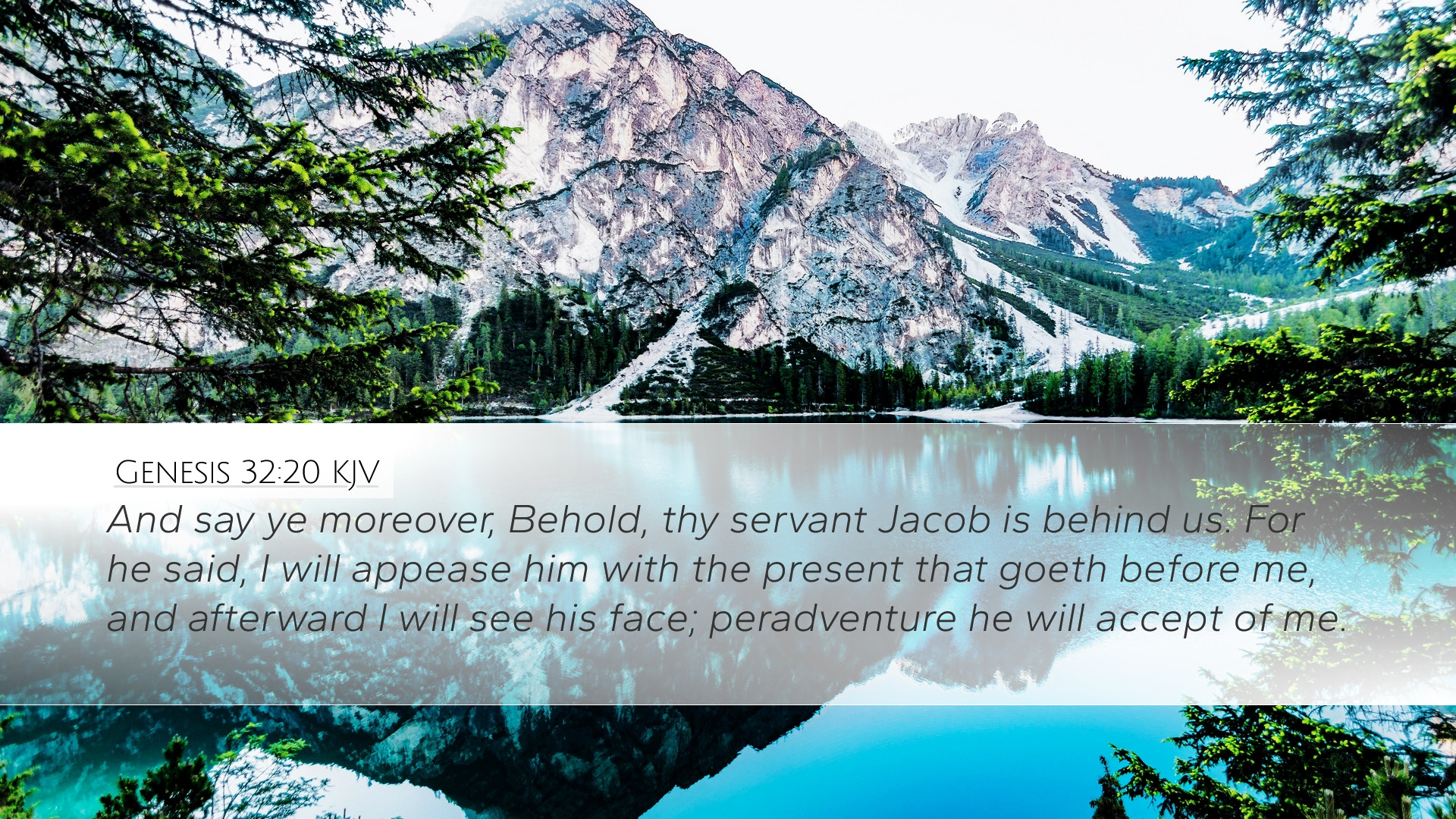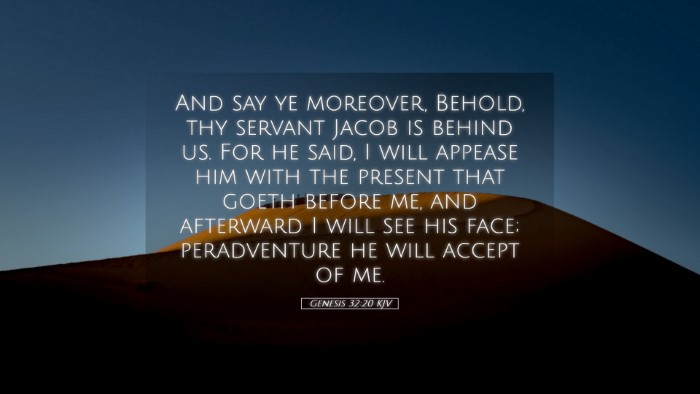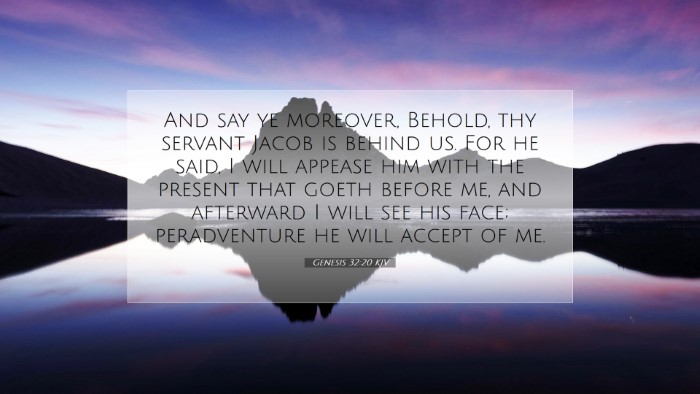Commentary on Genesis 32:20
This verse states: "And say ye moreover, Behold, thy servant Jacob is behind us: for he said, I will appease him with the present that goeth before me, and afterward I will see his face; peradventure he will accept of me."
Introduction
The context of Genesis 32:20 involves Jacob as he prepares to meet his brother Esau after many years of separation and tension stemming from their past conflicts. The verse captures Jacob's great anxiety and strategic thinking as he attempts to reconcile with Esau, showcasing themes of repentance, fear, and hope for reconciliation.
Theological Reflections
Jacob's Situation: Jacob’s journey back to Canaan brings with it the weight of his past, specifically the deception he employed to acquire his brother’s birthright and blessing.
Public Domain Insight: Matthew Henry notes that Jacob’s apprehension stems from his awareness of the wrongs he has committed and the unresolved conflict that stands between him and Esau.
Conflict with the Past: Jacob’s plan to send gifts ahead of himself to Esau is an acknowledgment of his wrongdoings and a means of attempting to seek forgiveness. According to Adam Clarke, this act demonstrates Jacob’s understanding that to seek reconciliation, one must also demonstrate humility and a desire to make amends.
Semiotic Analysis
The Import of “Thy Servant Jacob”: The designation of “thy servant” epitomizes Jacob’s transition from a position of pride and superiority to one of humility before Esau. Clarke elucidates this as indicative of Jacob’s spiritual metamorphosis and recognition of his inadequate standing without the grace of God.
- Humility: This phrase reveals the necessary disposition required for resolving conflicts — that of placing oneself under the authority and good graces of the other party.
- Presents as a Strategy: Jacob’s strategy of sending presents resonates with ancient Near Eastern customs where gifts could act to placate an adversary. This gesture signifies an effort to mend relational frictions.
Jacob's Motivation
Intention to Please: Jacob’s thought process leading up to the encounter with Esau reveals a deeper spiritual understanding. He acknowledges that human efforts alone may not suffice to garner mercy. Albert Barnes emphasizes that Jacob's prayer and gifts reflect a heartfelt appeal for divine mercy.
Approaching God: Jacob’s dilemma is not merely about the material gifts, but rather represents a comprehensive approach to reconciling with both God and Esau. His actions entail submission, demonstrating an understanding that reconciliation often involves recognizing one’s shortcomings.
Scriptural Parallels
References to Servanthood: The concept of servanthood permeates the Scriptures, reflecting the broader biblical theme of humility and servitude, ultimately culminating in Christ’s teaching on servanthood in the New Testament. As students and theologians reflect on this, it is vital to see this attribute in Jacob as a foreshadowing of a greater humility exemplified in Christ, who came not to be served but to serve.
Concluding Thoughts
Lessons for Today: The narrative of Jacob provides timeless principles applicable for those in leadership, pastoral roles, or any relational conflict. His actions invite reflection on the importance of humility, the recognition of our past failings, and the pursuit of genuine reconciliation.
- Humility in Approach: Just as Jacob approached Esau with humility, today’s leaders must prioritize humility in their endeavors towards reconciliation.
- The Role of Prayer: Prior to seeking reconciliation, Jacob's prayer indicates that divine intervention is necessary. This encourages leaders and followers alike to bring their conflicts before God.
- Active Efforts for Reconciliation: Sending gifts ahead of himself symbolizes that significant relations require intentional efforts to mend.
This verse encapsulates profound relational dynamics, offering insights that transcend Jacob’s immediate context. The heart of God is revealed as one who desires reconciliation, and all who look to Jacob's encounter can glean wisdom for their lives, communities, and churches.


